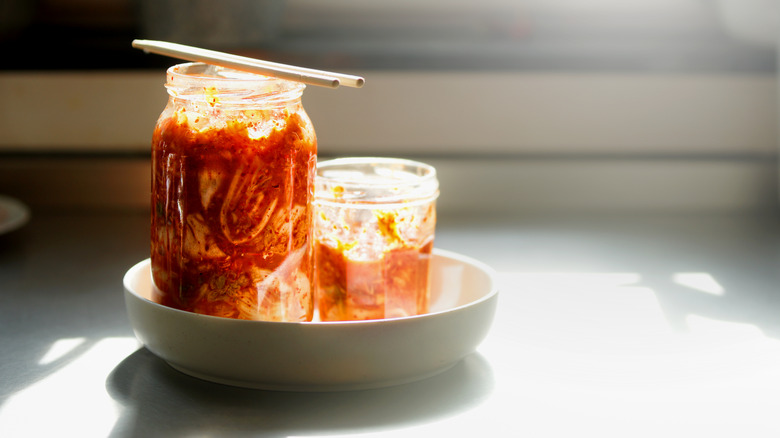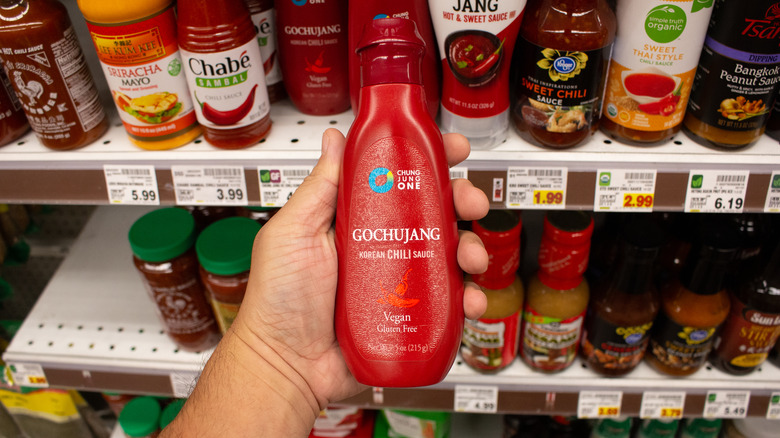The Rule Kimchi Breaks When Going Through South Korea's Largest Airport
Kimchi, that gut-friendly mixture of cabbage and spices, is a fun ingredient to get creative with in the kitchen. But as it turns out, it is not welcome on board planes departing from South Korea's largest airport, Incheon International Airport (ICN). ICN estimates that it confiscated nearly 11 tons of the stuff in 2024 — but not for the reason you might expect. It wasn't because it's perishable (which it is, even though kimchi lasts for a long time in the fridge), and it wasn't because the funky, fermented smell bothered fellow passengers. It was because, packed in with those slices of cabbage, there is liquid — brine, to be exact.
Like many nations around the world, including the U.S., ICN bans liquids in volumes over 3.4 ounces (or 100 milliliters) from carry-on luggage. Since that amounts to about half a cup for those trying to visualize, it's easy to see how a jar of kimchi might end up on the receiving end of Korea's version of TSA. So what happens to all the kimchi taken from passengers' bags? In some cases, it gets tossed, but in other, more charitable instances, it is donated to those in need.
Other items that got stopped at ICN
Kimchi wasn't the only forbidden food officials extracted from carry-on bags as travelers departed Seoul. Gochujang — the red chili paste made from glutinous rice that flavors kimchi (and, incidentally, the spicy Korean ingredient you should absolutely be adding to Alfredo pasta) — is also on South Korea's no-fly list. Though not exactly a liquid, it fits neatly into the "gel" category, which is likewise restricted in carry-ons in amounts over 3.4 ounces. Soybean pastes like doenjang, a bold-flavored miso alternative, were also among the offenders.
Koreans returning home from the United States were also in for an unpleasant surprise upon arriving at ICN. Popular everything bagel seasoning, widely available in American grocery stores, was confiscated if it contained poppy seeds — which are considered a narcotic in South Korea.
There is no way around the poppy seed restriction, but travelers departing from Seoul can sidestep the liquid and gel limits. Either pack kimchi, gochujang, or soybean paste in individual travel-sized bottles (all contained within a zip-top bag), or avoid bringing them in your carry-on altogether. There is no limit to how much liquid or gel you can pack in checked luggage bound for the plane's cargo hold.


